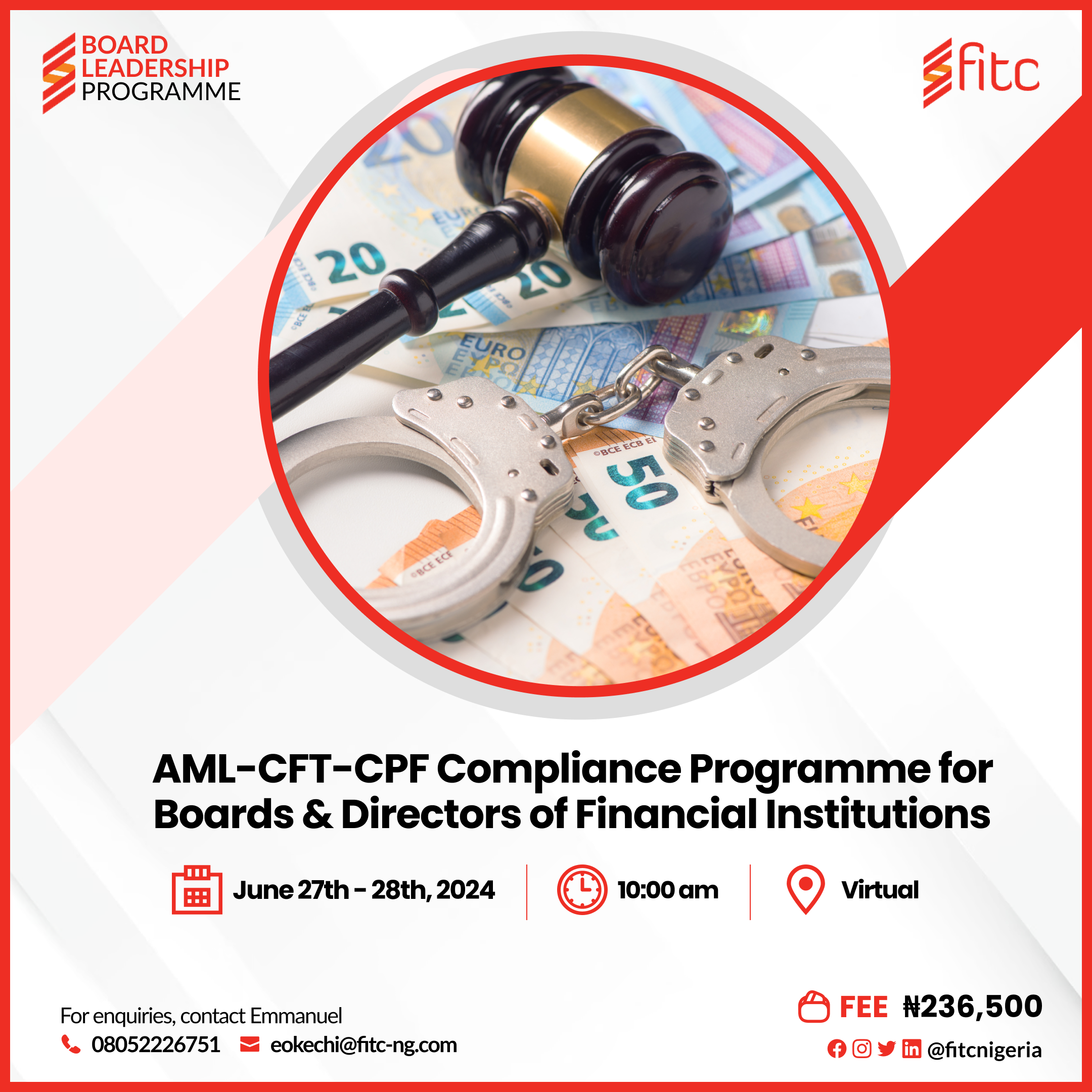AML-CFT-CPF Compliance Programme for Boards & Directors of Financial Institutions

Background
The emergence of the global COVID-19 pandemic has resulted in the phenomenal growth of financial services and increased cross-border activities with enhanced global financial intermediation and increased sophistication and complexities of emerging technology that continues to introduce new risks and opportunities for fraud.
Unfortunately, this development has been accompanied by a spate of transnationally organized crimes, including Money Laundering, Financing of Terrorism and Proliferation of Financing (ML/FT/PF). This development necessitated the need for regulators and other supporting inter-governmental agencies to introduce statutory requirements, consolidated by the Financial Action Task Force (FATF) Recommendations, to ensure compliance to statutory guidelines and build a strong viable financial system.
With Nigeria on the global FATFF grey list, the Boards thus have a crucial role in ensuring that their financial institutions comply with these standards and effectively address and mitigate the risks associated with financial crimes. In furtherance to this, and in line with statutory requirements, Directors of financial institutions are expected to undergo periodic training and retraining (quarterly) on AML-CFT-CPF Compliance to understand applicable regulations, bridge identified gaps, address inherent challenges, and avert likely consequences and sanctions.
The programme is designed to equip board members and directors with requisite knowledge on emerging and current regulations, its implications for non-adherence; as well as upscale their competencies and capabilities in ensuring and monitoring compliance, in line with its statutory requirements and the FATF standards.
Learning Outcomes
- Enhance Board awareness and need for continuous strong oversights on key risk areas with potentials for undermining the institutions.
- Develop more understanding of the high-level exposition on Proliferations financing and Targeted Financial Sanctions.
- Demonstrate clear understanding that financial institutions are now required to classify PEPs into Low, Medium and High Risk; and put strategic oversight control measures in place to safeguard their organisations from unnecessary risk exposures and possible financial sanctions.
- Enhance Board governance and strategic support in designing an AML-CFT-CPF Compliance framework for the organisation.
- Leverage emerging technologies and innovations in enhancing their oversight of effective compliance reporting and risk management.
Focused Areas:
- Emerging issues around the world on Regulatory Compliance Risk Management and ML-CFT-CPF in financial institutions in 2024.
- Proliferation financing and Targeted Financial Sanctions: Board Oversight Role in Typologies and Compliance Risk Mitigants
- Recent Regulatory Guidelines on Politically Exposed Persons and role of the Boards and Directors in Safeguarding their Organisations from Sanctions.
- Board Oversight of AML-CFT-CPF Compliance- A Critical Process for Sanctions Prevention
- The Role of the Board in Designing Compliance Strategies for Strengthening AML/CFT/CPF Compliance of Financial Institutions and Mitigating Risks
- Reporting and Communication
- Board reporting requirements and expectations.
- Effective communication channels between the board, senior management, and relevant stakeholders.
- Ensuring transparency and accountability in AML-CFT-CPF compliance.
Loading…







